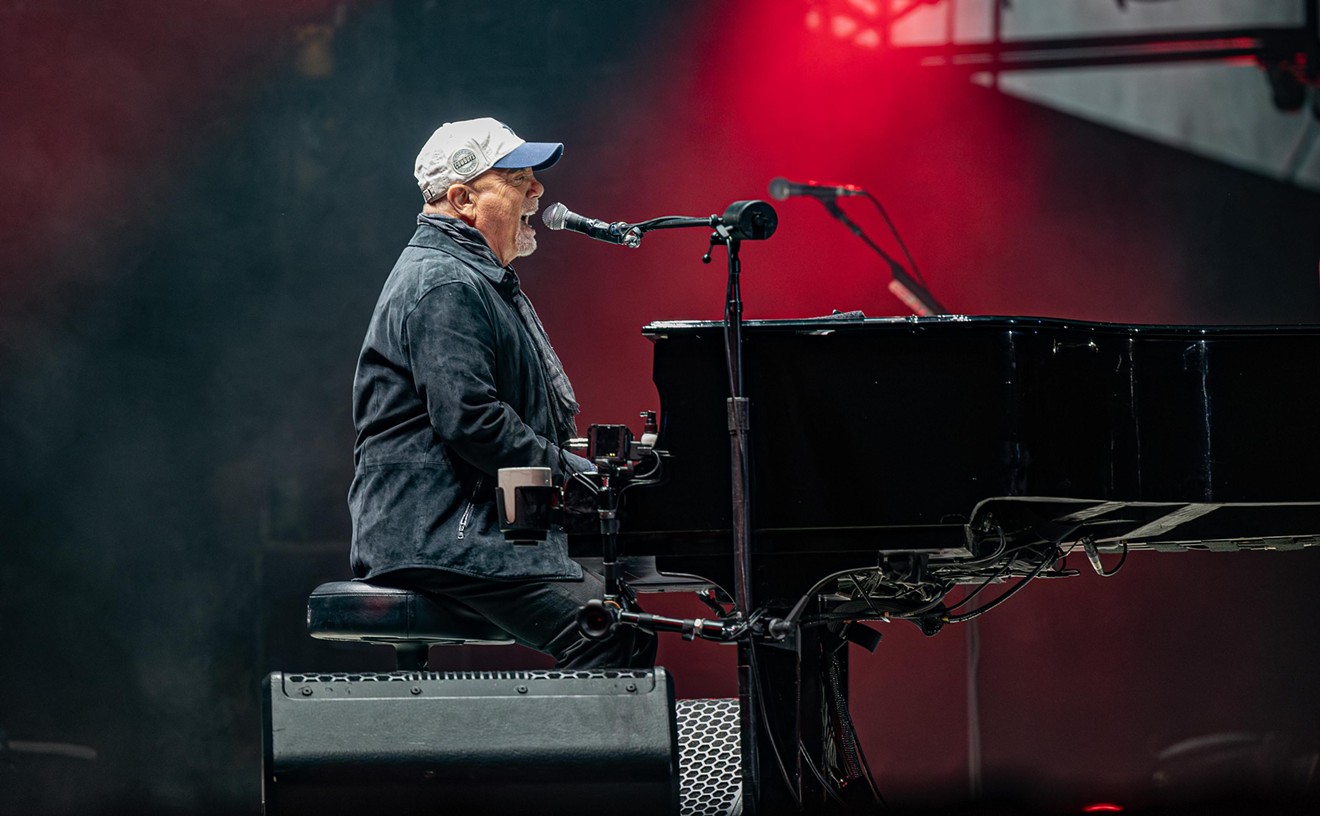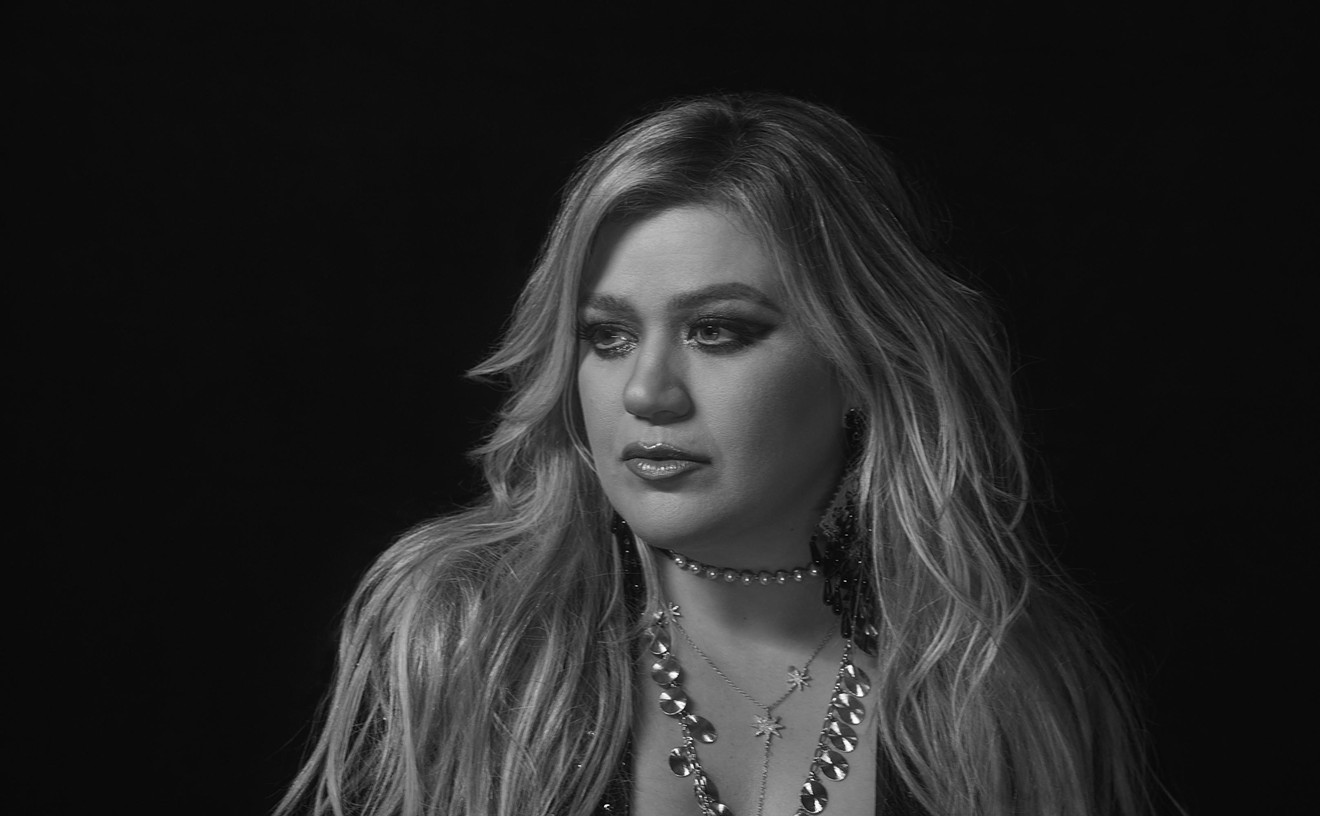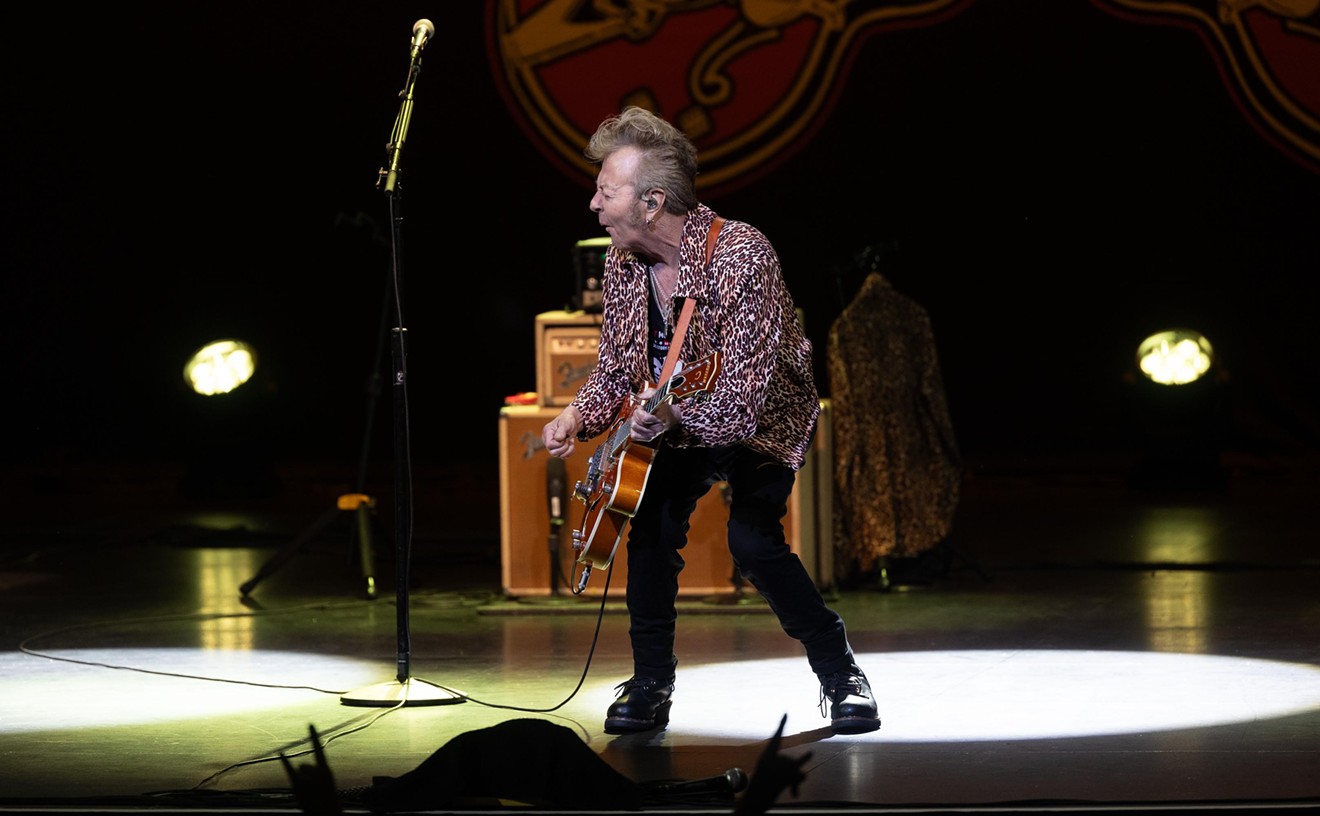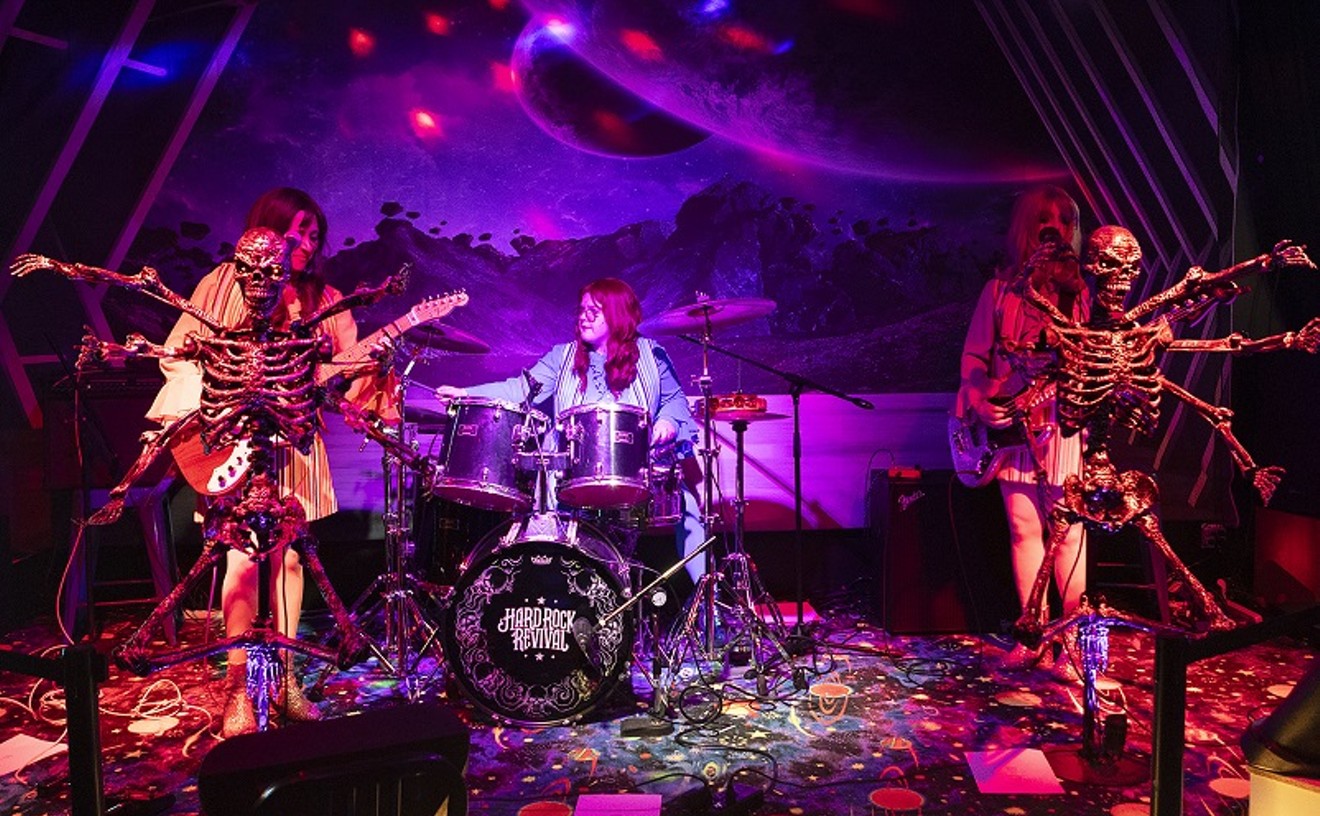As Texas’ lockdown restrictions are incrementally being lifted, more people are braving the pandemic and coming out to bars.
As much as we’d like to see a resurgence of nightlife, it does come with the price of having to intermingle with hoaxers and anti-maskers. However, you can always use the bar's own music to keep people at a distance. We suggest going to the bar’s internet jukebox and torturing patrons with these 10 songs, which will give them the incentive to go home.
The Velvet Underground, “Sister Ray”
The Velvet Underground’s 1968 album White Light/White Heat closes with the adventurous “Sister Ray,” a 17-minute track about drag queens engaging in a heroin-fueled orgy. With a simple G-F-C chord progression at its core, the song unravels into exponential chaos as the band improvises with two lead guitars and an organ, played by bassist John Cale.
“Sister Ray” was recorded in one take, and the sound was so grating that engineer Gary Kellgren walked out of the studio before its completion. Just imagine what unsuspecting patrons at a sports bar would do.
Throbbing Gristle, “Hamburger Lady”
It’s hardly hyperbolic to say that industrial pioneers Throbbing Gristle were among the most extreme and convention-defying musicians ever to form over the past century. The band’s 1978 track “Hamburger Lady” is a testament to this, as it concerns a victim of a car accident who was burned so badly that her skin’s appearance resembled ground meat.
Despite the song’s ghoulish overkill and sinister drone sound, it is somehow available on most internet jukeboxes.
Television, “Marquee Moon”
The title track of Television’s 1977 magnum opus Marquee Moon clocks in at 10 minutes and consists largely of jazz-like guitar improvisation, courtesy of Tom Verlaine and Richard Lloyd. For two measly credits, you can hold the entire bar socially hostage with one of punk music’s longest, most highbrow songs ever.
Panda Bear, “Good Girl/Carrots”
Animal Collective cofounder Panda Bear boasts an entire catalog of trippy, experimental pop, but few of his songs have the potential to ruthlessly murder a bar’s party vibe than the 12-minute twofer “Good Girl/Carrots.” If Captain Beefheart and Pink Floyd learned how to produce music on FL Studio software during a weeklong MDMA bender, this is what it would sound like.
Sugarhill Gang, “Rapper’s Delight”
“Rapper’s Delight” is unanimously regarded as a landmark single that gave the entire hip-hop genre a cultural and stylistic blueprint. As such, it joins the ranks of Grandmaster Flash’s “The Message” in being one of the most significant tracks in the genre’s history.
But make no mistake — the full recording of the song is a tedious listen. The radio version is a little under four minutes, so if you decide to play this cut, pick the 14-minute, unabridged version.
Laurie Anderson, “Sharkey’s Night”
Avant-garde legend and electronic music pioneer Laurie Anderson engaged in a series of collaborations with writer William S. Burroughs, particularly on the 1981 double album You’re the Guy I Want to Share My Money With, but one of the duo’s most popular, accessible songs was the two-minute cut “Sharkey’s Night.”
Burroughs’ vocal performance on this track is, to put it mildly, off-kilter, and his deadpan spoken word delivery has a mild resemblance to Anderson’s late husband and frequent collaborator, Lou Reed. The song may be short, but it is perhaps the least-welcoming sound a bar could ask for.
Arlo Guthrie, “Alice’s Restaurant”
It’s cliché for Vietnam War movies to play songs like Creedence Clearwater Revival’s “Fortunate Son,” but Arlo Guthrie’s protest anthem “Alice’s Restaurant” will never get its similarly deserved recognition for the simple reason that it is 18 minutes, 34 seconds long.
However, “Alice’s Restaurant” is perhaps best known as a Thanksgiving song, so should you decide to play this on an internet jukebox, make sure it doesn’t coincide with the holiday. People who go to bars on Thanksgiving are usually alone and depressed anyway.
Ween, “Zoloft”
You could pick just about any Ween song that isn’t on the SpongeBob SquarePants soundtrack if you want to play music that makes bar patrons feel uncomfortable, but the 2003 single “Zoloft” is one of the band’s best tracks. The song is named after an antidepressant, but its mood bears a closer resemblance to LSD.
Yoko Ono + John Lennon, “Kiss Kiss Kiss”
Yoko Ono is something of a hate sponge for middle-aged white dudes, and generally speaking, the reason behind this is a thick, hearty lasagna of wrongful blame, latent misogyny and a distaste for her music.
If these people have listened to her and her late husband’s 1970 collaborative album Yoko Ono/Plastic Ono Band, perhaps they would properly reassess Ono’s musical prowess. It’s a quality record, and as experimental as it is, it’s vanilla compared to later singles such as “Kiss Kiss Kiss.”
This particular number is probably one of Lennon’s most hated recordings for myriad reasons. It has a dance-pop, disco flavor that classic rock fans found uninviting, but more revolting is the avant-garde sound and, above all, Ono making an orgasm noise at the song’s close. You probably shouldn’t play this song when there are kids around.
Lou Bega, “Mambo No. 5”
On the now-defunct Comedy Central series Nathan For You, host Nathan Fielder tries to get a cab driver to “take down” Uber by turning him into an Uber driver and having him give customers as unpleasant an experience as possible. To do this, Fielder has the driver blare Lou Bega’s 1999 hit “Mambo No. 5” on loop, much to the passengers’ annoyance.
As Fielder himself notes in the episode, “Mambo No. 5” is considered by many experts to be one of the worst mainstream songs in recorded music history, and this is only worsened by the fact that the hook is an undeniable earworm.
If you’re truly determined to piss off bar-goers and possibly even the bartenders, play this song on a loop.
Music News
The Best Jukebox Songs to Play to Ensure Bar Patrons Keep Their Social Distance
As Texas’ lockdown restrictions are incrementally being lifted, more people are braving the pandemic and coming out to bars. As much as we’d like to see a resurgence of nightlife, it does come with the price of having to intermingle with hoaxers and anti-maskers. However, you can always use the...
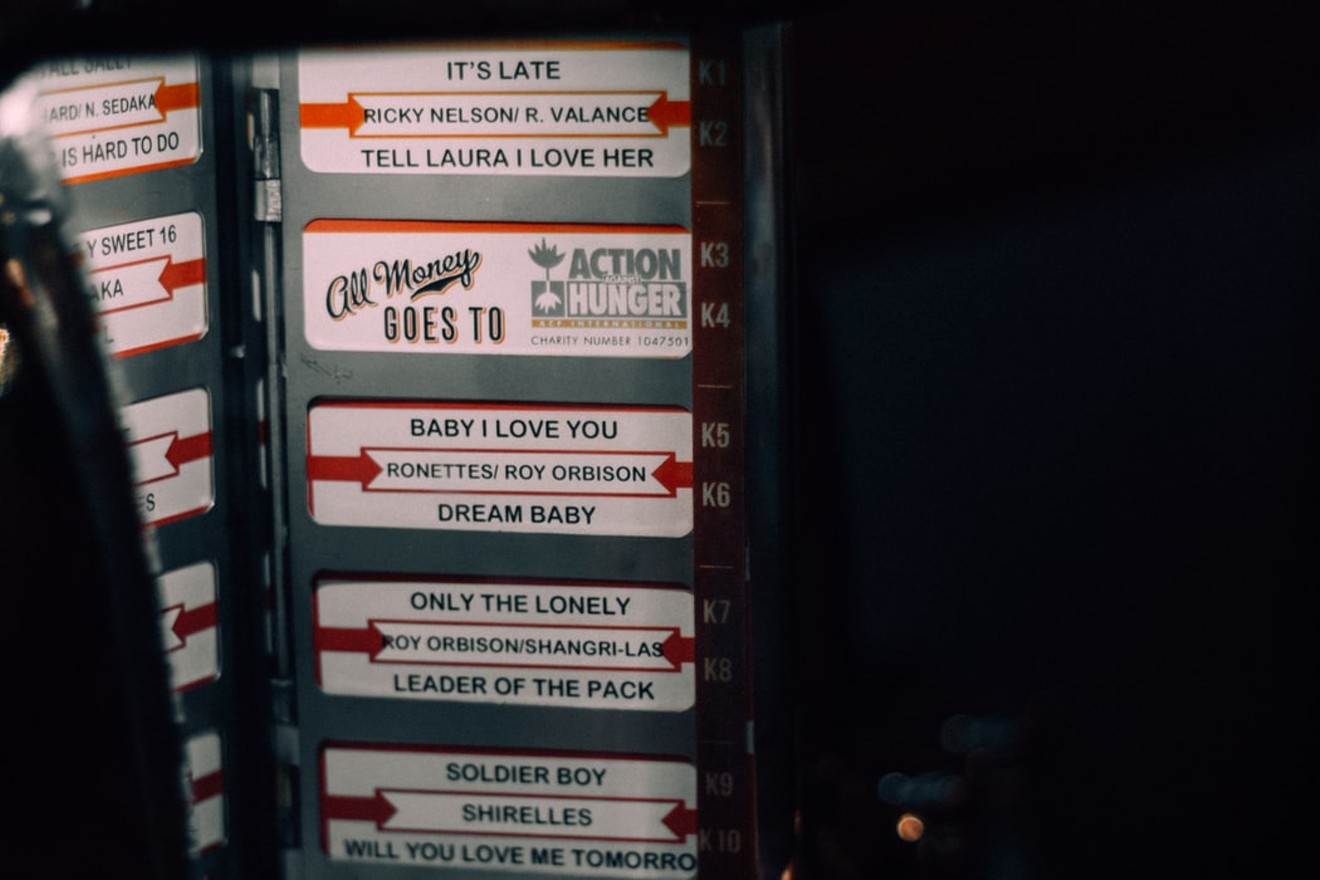
Nah, not these songs. We mean bad songs. Like, Yoko Ono faking an orgasm bad.
Alex Holyoake/Unsplash
[
{
"name": "Editor Picks",
"component": "17105533",
"insertPoint": "4",
"requiredCountToDisplay": "1"
},{
"name": "Inline Links",
"component": "18349797",
"insertPoint": "8th",
"startingPoint": 8,
"requiredCountToDisplay": "7",
"maxInsertions": 25
},{
"name": "Air - MediumRectangle - Combo - Inline Content",
"component": "17105532",
"insertPoint": "8th",
"startingPoint": 8,
"requiredCountToDisplay": "7",
"maxInsertions": 25
},{
"name": "Inline Links",
"component": "18349797",
"insertPoint": "8th",
"startingPoint": 12,
"requiredCountToDisplay": "11",
"maxInsertions": 25
},{
"name": "Air - Leaderboard Tower - Combo - Inline Content",
"component": "17105535",
"insertPoint": "8th",
"startingPoint": 12,
"requiredCountToDisplay": "11",
"maxInsertions": 25
}
]





